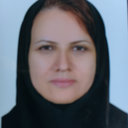The effect of the cardiac rehabilitation program on obese and non-obese females with coronary heart disease.
Sleutelwoorden
Abstract
BACKGROUND
Obesity is strongly associated with coronary heart disease and it is known as an independent risk factor. So, the aim of this study was to investigate the effects of phase II comprehensive cardiac rehabilitation program on obesity indexes, functional capacity, lipid profiles, and fasting blood sugar in obese and non-obese female patients with coronary heart disease and to compare changes in these groups.
METHODS
Two hundred and five women with coronary heart disease participated in our study. At the beginning of study, body mass index, functional capacity, and lipid profiles and fasting blood sugar were evaluated; then, these patients were divided into two groups, patients who had BMI≥30 were known as obese and who had BMI<30 were known as non-obese patients. All of them completed the period of cardiac rehabilitation program, and 2 months later, all risk factors were examined for the second time in each group. Data were analyzed with SPSS software version 15. For comparing the mean of outcomes, independent t-tests and paired t-tests were used.
RESULTS
Data revealed that unless in weight (P=0.00) and functional capacity (P=0.001), there were no significant differences in obese and non-obese female patients, at baseline. As a result of the cardiac rehabilitation program, both groups had significant improvement in functional capacity (P=0.00), weight reduction (P=0.00), triglyceride (P=0.01 and P=0.02, respectively), low-density lipoprotein cholesterol (P=0.01), and low-density lipoprotein cholesterol/high-density lipoprotein cholesterol ratio (P=0.00 and P=0.003, respectively). As well, significant improvement was observed in high-density lipoprotein (P=0.01) only in obese female, and non-obese female had significant differences in total cholesterol (P=0.003). However, there were not significant changes in total cholesterol (P=0.05) and fasting blood sugar (P=0.09) in obese female. Also, non-obese females didn't have favorable differences in high-density lipoprotein cholesterol (P=0.23) and fasting blood sugar (P=0.13). In addition, comparing two groups didn't show any significant differences in each risk factors except BMI (P=0.03).
CONCLUSIONS
Our study revealed that comprehensive cardiac rehabilitation program results in significant improvement in cardiovascular risk factors and functional capacity at all levels of BMI in female with coronary heart disease.


